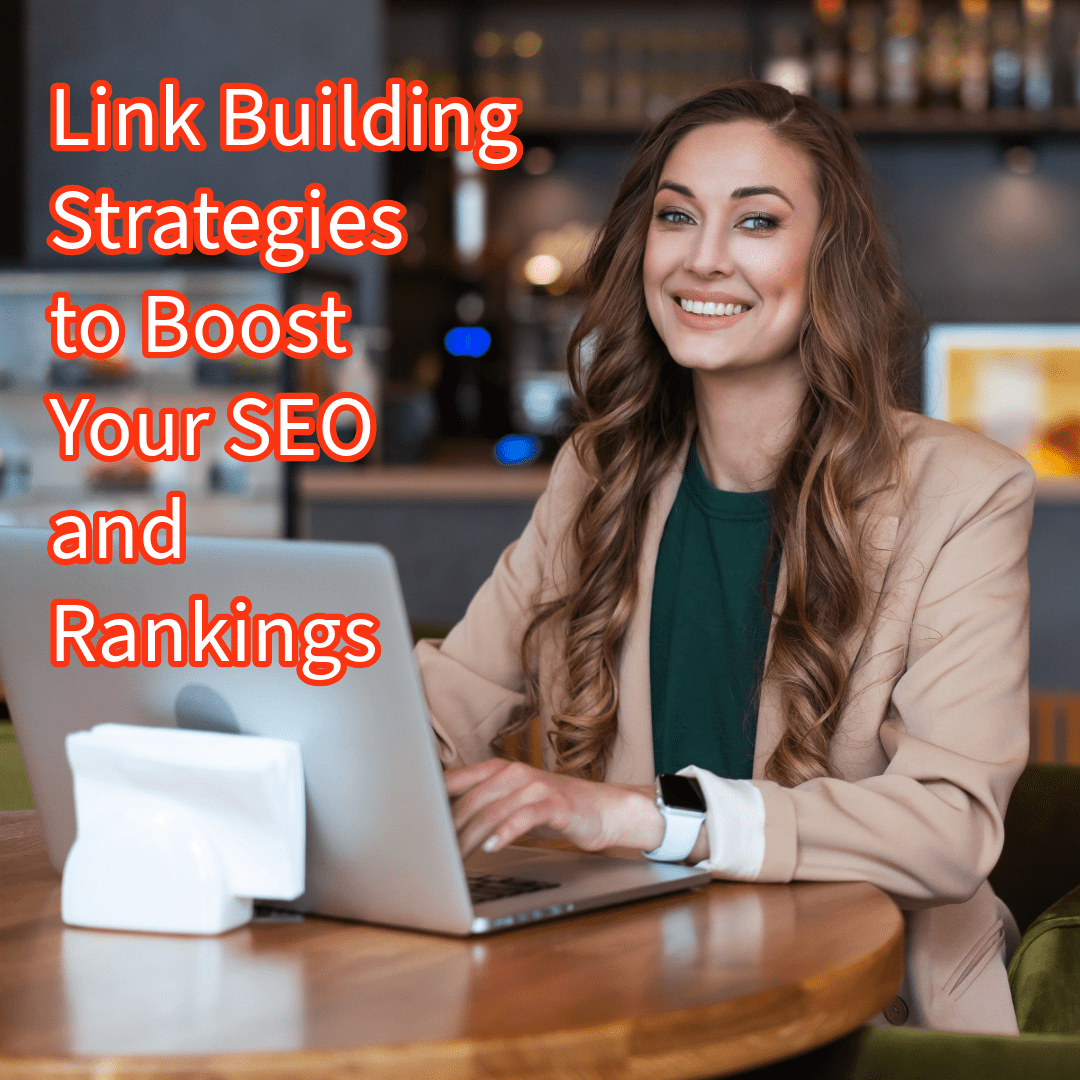
Link building remains a cornerstone of Search Engine Optimization (SEO), for enhancing website authority and improving search rankings.
In the evolving landscape of digital marketing, one thing remains constant: the importance of quality backlinks for search engine optimization (SEO).
Backlinks act as votes from other websites, signaling to search engines that your content is reliable and valuable.
Here are some link-building strategies to boost your SEO and rankings.
Link Building – Strategies to Boost Your SEO and Rankings

Understanding the Importance of Link Building
It’s essential to understand why link building is a crucial aspect of SEO. Search engines like Google use backlinks as a ranking factor because they are endorsements of your content’s credibility.
When reputable websites link to your pages, it increases your site’s authority and improves rankings on search engine results pages (SERPs).
Moreover, an effective link-building strategy bolsters SEO increases referral traffic, and establishes your brand as an industry leader.

- Creating High-Quality Content
The foundation of any effective link-building campaign is outstanding content. Without valuable, engaging, and informative content, it is challenging to earn natural backlinks.
Here are some content strategies to consider.
Comprehensive Guides and Tutorials
Develop in-depth resources that provide value to your audience. These long-form articles can become definitive guides in your niche, attracting backlinks from other websites that reference your work as an authoritative source.

Data-Driven Content
Original research, case studies, and white papers are highly linkable. Data-backed insights naturally invite citations from industry peers, bloggers, and news outlets.
Infographics and Visual Content
Visuals are shareable and often receive backlinks when embedded in other articles. Investing in high-quality graphics, charts, and infographics can amplify your link-building efforts.
Interactive Content
Quizzes, calculators, and interactive tools engage users and encourage sharing, which can lead to organic link acquisition.
- Guest Posting: Expanding Your Reach
Guest posting is one of the most effective strategies for building quality backlinks. By contributing content to reputable websites within your industry, you gain exposure to new audiences while securing authoritative links.

Here’s how to get out the most of guest posting:
Target the Right Websites: Focus on high-authority sites that align with your niche. Prioritize websites with engaged readership and robust editorial standards.
Craft High-Quality Content: Your guest posts should be well-researched and provide insights or solutions. Avoid duplicative content that doesn’t add value to the host site.
Include Natural Backlinks: When permitted, include contextual links back to relevant pages on your site. These should be integrated into your content to maintain a natural flow.
Build Relationships: Foster relationships with editors and bloggers. A successful guest post can lead to recurring contributions and more linking opportunities in the future.
- Outreach (Relationship Building)
Outreach involves contacting website owners, influencers, and industry leaders to secure backlinks.
Personalize Your Outreach: Research your targets and craft personalized messages to specific articles or content on their site.

Offer Value: Explain how linking to your content can benefit their audience. Whether it’s by providing updated data, unique insights, or supplementary resources, outline the mutual benefits.
Follow-Up Strategically: If you don’t receive an initial response, a polite follow-up email can make a difference. Persistence, without being pushy, is key.
Utilize Social Media: Engage with potential link partners on social media platforms. Commenting on blog posts, sharing content, and participating in industry discussions can reach potential partners.
- Broken Link Building: A Win-Win Approach
Broken link building is an effective tactic that involves identifying broken links on reputable websites and suggesting your content as a replacement. This method benefits both parties: you gain a valuable backlink, and the website owner improves user experience by fixing dead links.

Identify Broken Links: Use tools like Check My Links or Broken Link Checker to scan websites for broken outbound links.
Find Relevant Content: Once you identify a broken link, search for or create content on your site that matches the missing resource.
Contact the Webmaster: Inform the site owner of the broken link and suggest your content as a viable alternative. Highlight how your content can add value to their audience.
Follow-Up: If you don’t hear back, a follow-up email may be necessary. Ensure that your approach is respectful and non-intrusive.
- Resource Page Link Building
Resource pages are curated lists of valuable content maintained by educational institutions, government agencies, or industry experts. Securing a spot on these pages can boost your SEO efforts and rankings.

Research Relevant Resource Pages: Use search queries like “keyword + resources” or “keyword + useful links” to find pages that curate content in your niche.
Analyze the Content: Ensure that your content is valuable and relevant to the theme of the resource page.
Reach the Curator: Send a personalized email to the page curator explaining why your content would be a great addition to their resource list. Provide clear examples of the value it offers.
Maintain Your Relationship: Once your content is featured, maintain a positive relationship with the curator. Engage with their content and consider ways to support their initiatives in return.
Resource page link building is a targeted approach that can help you secure high-quality backlinks and drive sustained referral traffic.
- Leveraging Social Media and Community Engagement
Social media platforms and online communities can help modern link-building strategies. While social signals may not directly influence search rankings, they help amplify your content’s reach, increasing the likelihood of earning backlinks.

Share Your Content Strategically: Use platforms like Twitter, LinkedIn, and Facebook to promote your content. Tailor your posts to each platform’s audience and engage with comments and discussions.
Participate in Niche Communities: Forums, discussion boards, and groups related to your industry are essential for building relationships and sharing content. Platforms like Reddit and specialized LinkedIn groups can be excellent for generating organic links.
Influencer Collaborations: Partner with influencers who share your target audience. Collaborative projects, interviews, and co-authored articles can lead to mutual backlink opportunities.
Monitor Mentions: Use tools like Google Alerts or Mention to track when your content is discussed online. Engage with those mentions and, if appropriate, request a formal link.
- Ensuring Quality and Avoiding Penalties
Quality is crucial. Search engines are adept at identifying manipulative link-building practices. To safeguard your website from potential penalties, use these practices.
Focus on Relevance and Authority: Aim for backlinks from sites that are relevant to your industry and have strong domain authority.

Avoid Link Farms and Low-Quality Directories: Such practices can harm your SEO efforts in the long run and may result in search engine penalties.
Diversify Your Link Sources: A natural backlink profile consists of a variety of link types, including guest posts, editorial links, and resource links. Avoid over-relying on any single tactic.
Regularly Audit Your Backlinks: Use SEO tools to monitor your backlink profile and disavow any harmful links that may negatively impact your rankings.
Adhere to Search Engine Guidelines: Familiarize yourself with guidelines by search engines like Google to ensure that your practices remain compliant.

The key to successful link-building is to focus on quality over quantity, ensuring that each backlink is earned through genuine value and relationship-building efforts.
With consistent effort and a strategic approach, you can harness the power of link-building to boost your SEO performance and achieve long-term success.
These strategies offer a blueprint for developing a dynamic, effective link-building campaign.
Use these link-building strategies to boost your SEO and rankings and drive growth and success.
AI Tools for You
https://www.bestprofitsonline.com/myblog/newai
Tip
How To Improve Your Social Media Marketing
